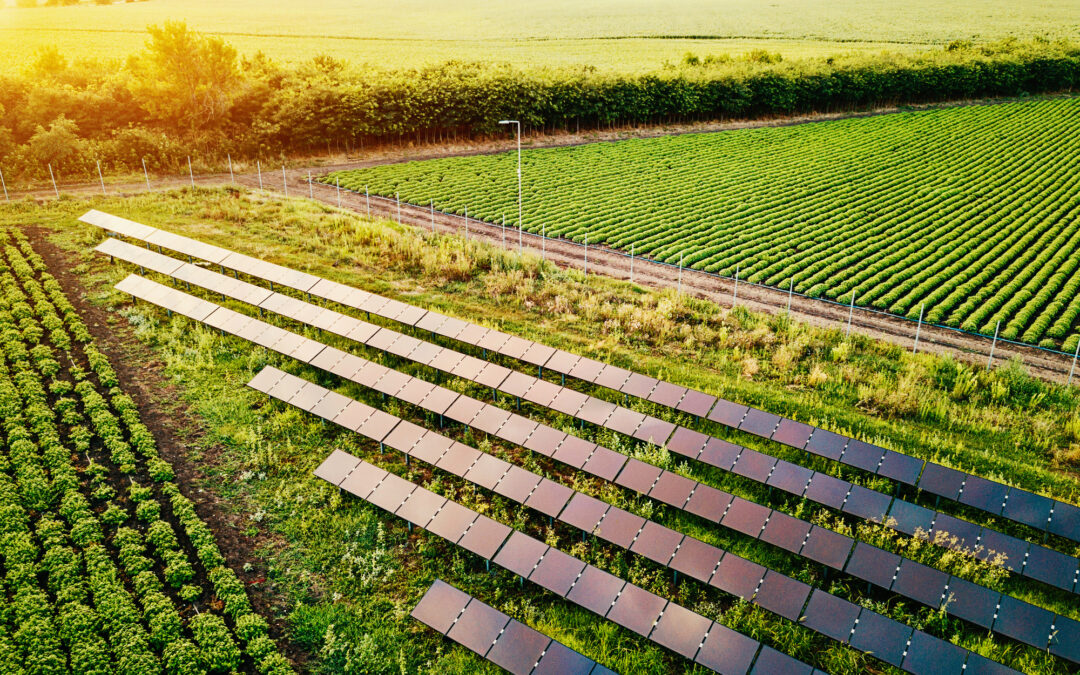As the agricultural landscape evolves, Minnesota farmers are increasingly turning to solar energy to power their operations. From financial savings to environmental sustainability, solar power offers a multitude of benefits for farms of all sizes. If you’re considering going solar but have questions about how it works and its potential impact on your farm, this blog post is for you. We’ll address frequently asked questions about solar energy for Minnesota farmers, covering everything from financial incentives to environmental benefits and more.
Q: How can solar energy benefit Minnesota farmers financially?
One of the most compelling reasons for farmers to go solar is the significant financial savings it offers. By harnessing the power of the sun, farmers can save thousands of dollars on electricity bills annually. Solar energy systems provide long-term cost savings and return on investment (ROI), contributing to the financial sustainability of farms across Minnesota.
Farmers can leverage the 30% Federal Investment Tax Credit (ITC) to further incentivize solar adoption. This tax credit directly reduces the upfront costs of installing a solar energy system, making it more financially viable for farmers and agricultural businesses.
For farmers considering solar investments, the ITC represents a valuable opportunity to offset a significant portion of the initial investment. By reducing the overall project costs, the ITC enhances the return on investment (ROI) and accelerates the payback period for solar installations. Moreover, the tax credit applies to the total installed cost of the solar system, including equipment, labor, and associated expenses, further maximizing its impact on affordability.
Q: What are the long-term cost savings associated with solar energy for farms?
In addition to upfront savings through tax incentives, powering your farm with solar energy can lead to reduced operating costs over time. Solar energy provides farmers with a reliable and sustainable alternative to traditional energy sources, offering essential protection against inflation and volatile energy markets. As energy costs continue to fluctuate, farmers face the risk of escalating expenses that can strain their budgets and impact profitability. However, by harnessing the power of the sun, farmers can effectively shield themselves from these uncertainties.
Q: What advantages does solar energy offer in terms of energy independence for farms?
Solar energy systems enable farmers to generate their own electricity, reducing reliance on the grid and mitigating the impact of rising energy prices. By producing clean, renewable energy on-site, farmers can stabilize their energy costs and achieve greater predictability in their operating expenses. This stability is particularly crucial for agricultural operations, where consistent budgeting and financial planning are essential for long-term success.
Q: How does solar energy contribute to environmental sustainability on farms?
Solar energy plays a pivotal role in advancing environmental sustainability and mitigating the impacts of climate change. By harnessing renewable energy from the sun, farmers can substantially reduce their carbon footprint and contribute to broader environmental conservation efforts. Unlike conventional energy sources such as fossil fuels, which release harmful greenhouse gasses into the atmosphere when burned, solar power offers a clean and sustainable alternative.
By transitioning to solar energy, farmers can also minimize their reliance on non-renewable resources and reduce the emission of greenhouse gasses, such as carbon dioxide and methane, which are major contributors to global warming and climate change. The adoption of solar energy aligns seamlessly with the principles of sustainable farming practices, promoting environmental stewardship and responsible land management. Solar power represents not only an economically viable solution for farmers but also a crucial step towards building a more sustainable and resilient agricultural sector.
Q: How flexible is solar energy for farms of different sizes and types?
Solar energy offers unparalleled flexibility for farms of all sizes and types, including family farms and larger-scale agricultural operations. One of the key benefits lies in its adaptability to diverse landscapes and infrastructures. For farms with ample land, ground-mounted solar arrays provide an excellent option, utilizing open space to capture maximum sunlight. These arrays can be strategically positioned to minimize shading and optimize energy production. Alternatively, for farms with limited land availability or buildings with suitable rooftops, rooftop solar installations offer a viable solution. Solar panels can be mounted on existing structures such as barns, warehouses, or other outbuildings, maximizing space efficiency without compromising agricultural activities.
Solar energy systems can also be tailored to accommodate the specific energy demands of different farming operations. Whether you require electricity to power irrigation systems, lighting for livestock barns, or refrigeration for food storage, solar solutions can be customized to meet these needs effectively. This versatility makes solar energy a practical and accessible option for farms of all kinds, empowering agricultural producers to reduce operating costs, enhance sustainability, and achieve greater energy independence.
Minnesota Solar Energy Installation
From financial incentives to environmental benefits and energy independence, solar energy offers a multitude of advantages for farms across the state. As Minnesota farmers continue to explore sustainable practices and renewable energy solutions, solar power emerges as a key driver of agricultural innovation.
As a trusted solar energy company in Minnesota, Cedar Creek Energy is committed to helping farmers harness the power of the sun to enhance their operations. We specialize in designing and installing customized solar solutions tailored to the uniqu
e needs and challenges of agricultural settings. Our experienced team works closely with farmers to assess their energy requirements, determine the optimal solar system size and configuration, and navigate the installation process seamlessly. Additionally, we provide ongoing maintenance and monitoring services to ensure the long-term performance and efficiency of the solar energy system. With Cedar Creek Energy as your partner, farmers can confidently embrace solar energy to boost sustainability, reduce costs, and achieve greater energy independence for their operations. Contact us to request a free solar bid.

